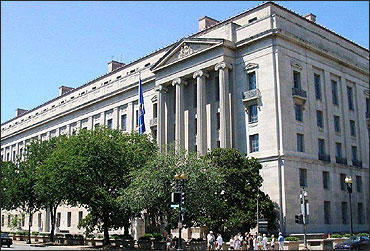 | « Back to article | Print this article |
US probing S&P's rating of mortgages: Report
The Justice Department of the United States is investigating whether credit ratings agency Standard & Poor's improperly rated dozens of mortgage securities in the years leading up to the global financial crisis of 2008, a media report says.
Citing two people familiar with the matter, the New York Times said the investigation began before Standard & Poor's cut the United States' AAA credit rating this month, but it is likely to add fuel to the political firestorm that has surrounded that action.
"Lawmakers and some administration officials have since questioned the agency's secretive process, its credibility and the competence of its analysts, claiming to have found an error in its debt calculations," the report said.
Click on NEXT for more...
US probing S&P's rating of mortgages: Report
The Justice Department has been asking about instances in which the company's analysts wanted to award lower ratings on mortgage bonds, but may have been overruled by other S&P business managers.
"If the government finds enough evidence to support such a case, it could undercut S&P's long standing claim that its analysts act independently from business concerns," the newspaper said.
The daily said it is unclear as to whether the Justice Department investigation involves the other two ratings agencies, Moody's and Fitch, or is confined only to S&P.
Click on NEXT for more...
US probing S&P's rating of mortgages: Report
Ed Sweeney, a spokesman for S&P, said in an e-mail response to the daily that: "S&P has received several requests from different government agencies over the last few years.
We continue to cooperate with these requests. We do not prevent such agencies from speaking with current or former employees."
"A successful case or settlement against a giant like S&P could accelerate the shift away from the traditional ratings system," the NYT said.
Meanwhile, the US Securities and Exchange Commission has also been investigating possible wrongdoing at S&P and may be looking at the other two major agencies, Moody's and Fitch Ratings, the NYT said, citing a person familiar with the matter.
Click on NEXT for more...
US probing S&P's rating of mortgages: Report
Despite the public scrutiny and outcry over the ratings agencies' failures leading up the financial crisis, many investors still rely heavily on ratings from the three main agencies for their purchases of sovereign and corporate debt, as well as other complex financial products.
Companies and some countries -- but not the United States -- pay the agencies to receive a rating, the financial market's version of a seal of approval.
For decades, the government issued rules that banks, mutual funds and others could rely on a AAA stamp for investing decisions, which bolstered the agencies' power.



